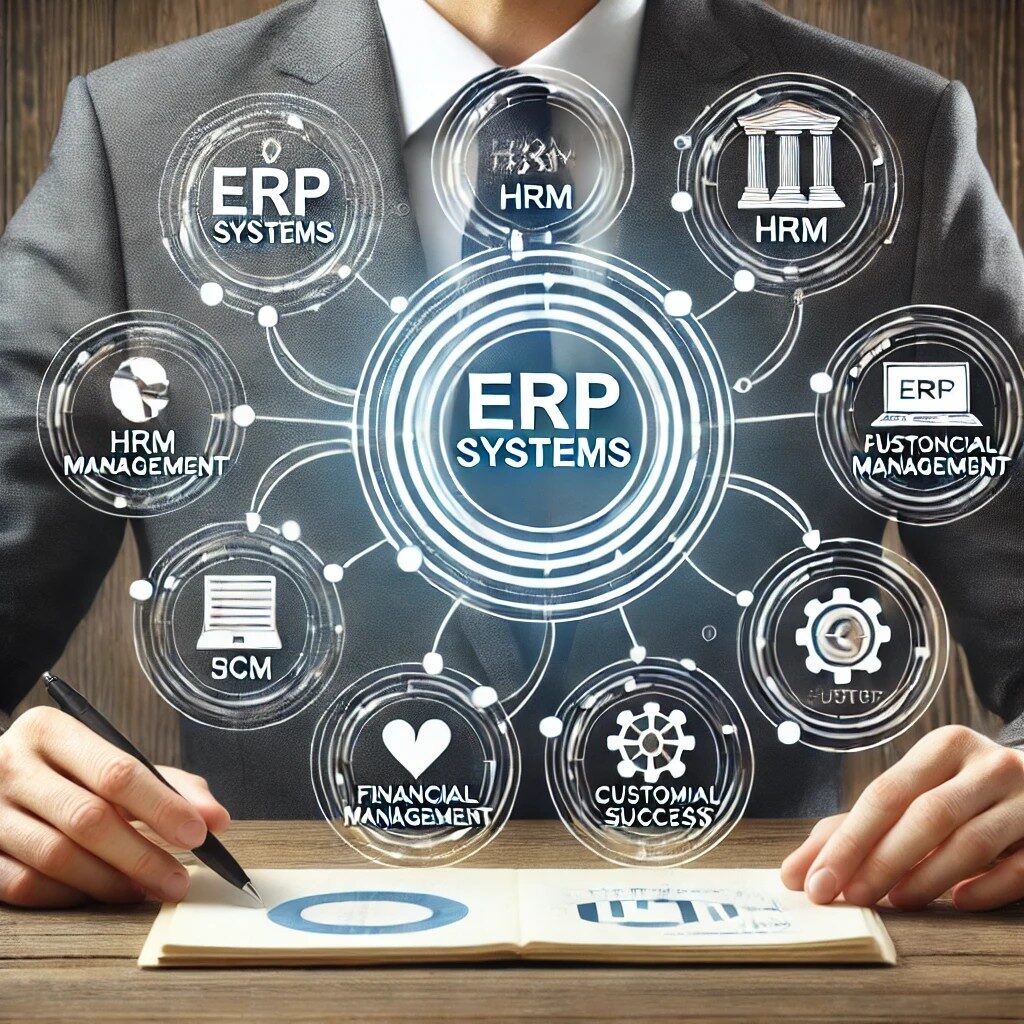What do you do if your long-term career in ERP hits a roadblock?
There’s no doubt the ERP market is mature, and many ERP consultants, both functional and technical, are feeling the pinch. Having been an ERP consultant myself, I understand the challenges today’s professionals face. While it’s true that new opportunities in ERP may appear to be shrinking, it’s equally true that as long as businesses exist, they will need ERP. The same can be said for related systems like CRM, HRM, and Customer Success platforms, which I refer to as “Business Systems.” These systems are the backbone of many organizations, and they are not going away anytime soon.

What’s changed is how these systems are being used, driven by rapid advancements in disruptive technologies like AI, automation, and machine learning. These technologies are reshaping business landscapes, and while they promise new efficiencies, they also bring challenges. It will take time for AI and related technologies to fully mature, and businesses will need time to adapt. This creates an opportunity for ERP professionals to become pivotal change agents in this transformation.
Many ERP professionals find themselves at a crossroads, with traditional roles diminishing. However, rather than seeing this as a roadblock, I believe it’s an opportunity to evolve. The fundamental need for business systems remains; what’s changing is the role these systems play and how they integrate with cutting-edge technologies. ERP professionals, who understand both the technical and business sides of these systems, are in a unique position to lead this transformation.
The Current ERP Market
ERP, as a market, has been around for decades, and it’s natural for the demand in certain areas to flatten as systems become more established. However, ERP is not going away. Instead, the focus is shifting toward modernizing these systems, moving from legacy platforms to cloud-based solutions like SAP S/4HANA and Oracle Fusion. The integration of AI and automation is also creating new opportunities for optimizing business processes in ways we couldn’t have imagined a few years ago.
Many businesses are still running on outdated systems and processes. Modernizing these systems not only improves efficiency but also helps businesses remain competitive. This is where ERP professionals can add significant value. Understanding how to manage these transitions and integrate new technologies into existing business systems can help companies future-proof their operations.
ERP and Emerging Technologies
Disruptive technologies such as AI, machine learning, and automation are transforming the way businesses operate. These technologies promise to enhance decision-making, optimize operations, and drive greater efficiency. For example, AI can automate routine tasks, while machine learning can help businesses forecast demand or optimize inventory management.
However, these technologies are not a replacement for ERP systems—they are a complement. ERP remains essential for managing core business functions like finance, procurement, and supply chain management. The challenge for businesses is figuring out how to integrate AI and other emerging technologies into their existing ERP systems to unlock their full potential.
This is where ERP consultants come in. With a deep understanding of business processes and systems, ERP professionals are ideally positioned to guide businesses through this transition. By becoming well-versed in AI, cloud solutions, and data analytics, ERP consultants can help businesses leverage these technologies effectively. In many ways, ERP professionals are best suited to be the change agents businesses need during this period of disruption.
The Role of ERP Consultants in the Future
While the demand for traditional ERP roles may be slowing down, the need for business systems expertise is not. As AI, machine learning, and automation become more integrated into business operations, the role of the ERP consultant will evolve. ERP consultants will need to adapt by expanding their skillsets to include these new technologies.
By staying ahead of these trends, ERP professionals can ensure they remain valuable to their organizations. Upskilling in areas like AI, cloud ERP platforms, and data analytics will allow ERP consultants to take on more strategic roles within their organizations. Rather than focusing solely on system implementation, ERP consultants can become trusted advisors who help businesses navigate digital transformation.
In addition to technical skills, ERP professionals will need to develop strong change management and leadership capabilities. Businesses undergoing digital transformation often struggle with the human side of change—employees may be resistant, and leadership teams may be uncertain about how to move forward. ERP consultants, with their deep understanding of business processes, can help bridge this gap by providing clear guidance on how to successfully integrate new technologies into the organization.
Conclusion
In short, while the ERP market is changing, it is far from shrinking. ERP professionals are in a unique position to lead businesses through this period of technological disruption. By embracing new technologies like AI and machine learning, and by developing the necessary skills to manage digital transformation, ERP consultants can not only overcome the roadblocks in their careers but also position themselves as essential drivers of change. Businesses will continue to need ERP and its related systems, and ERP consultants can play a crucial role in ensuring these systems evolve to meet the challenges of tomorrow.